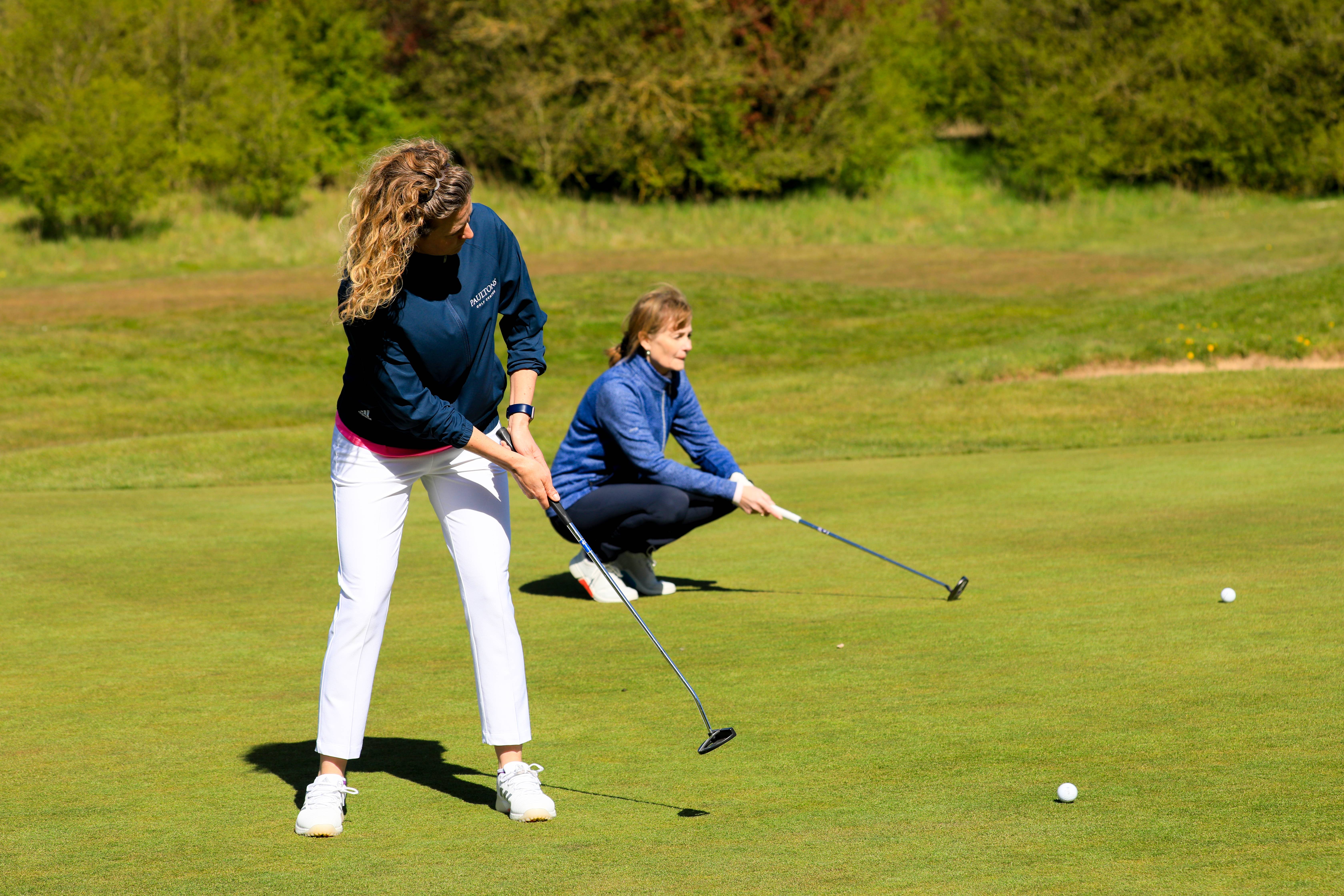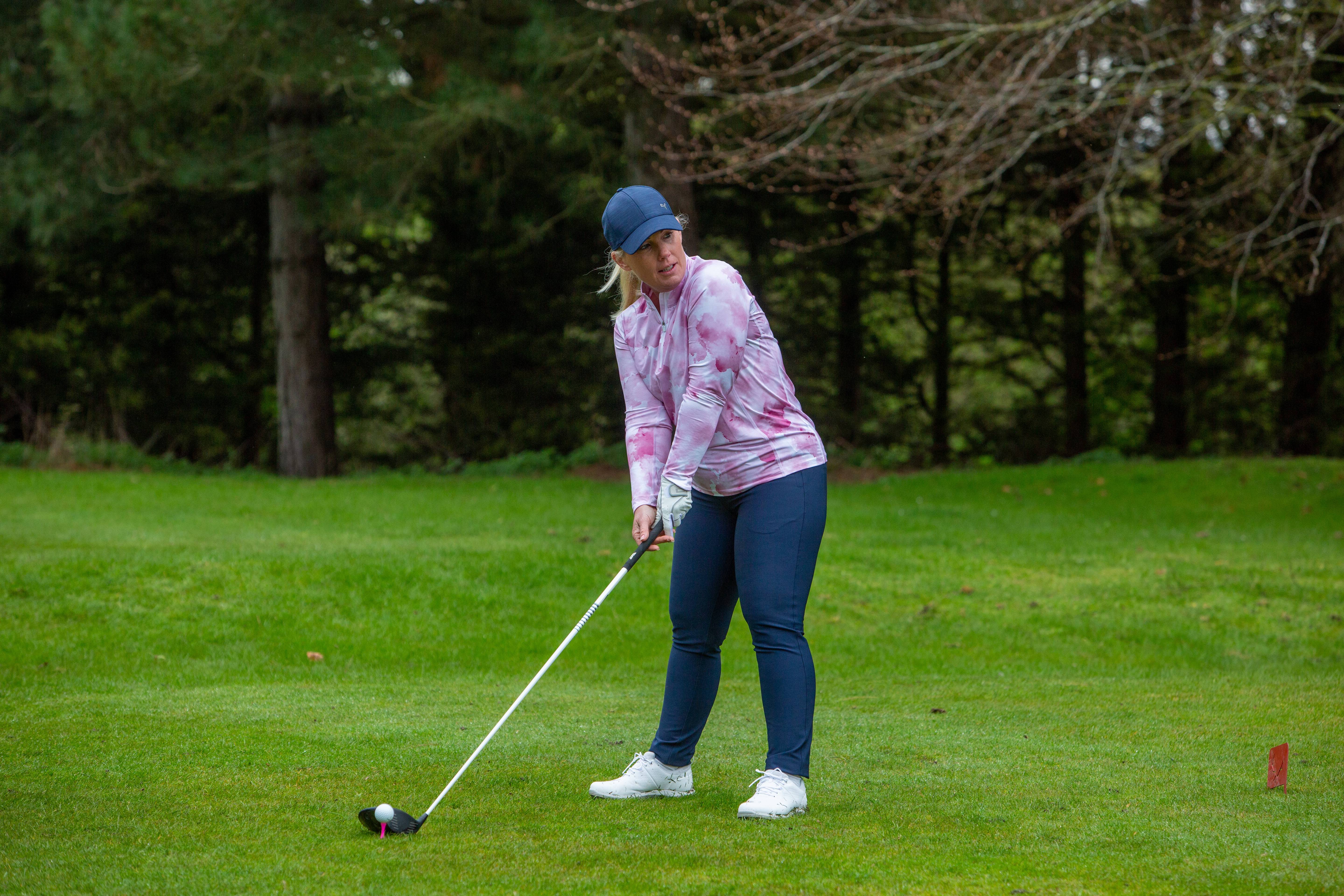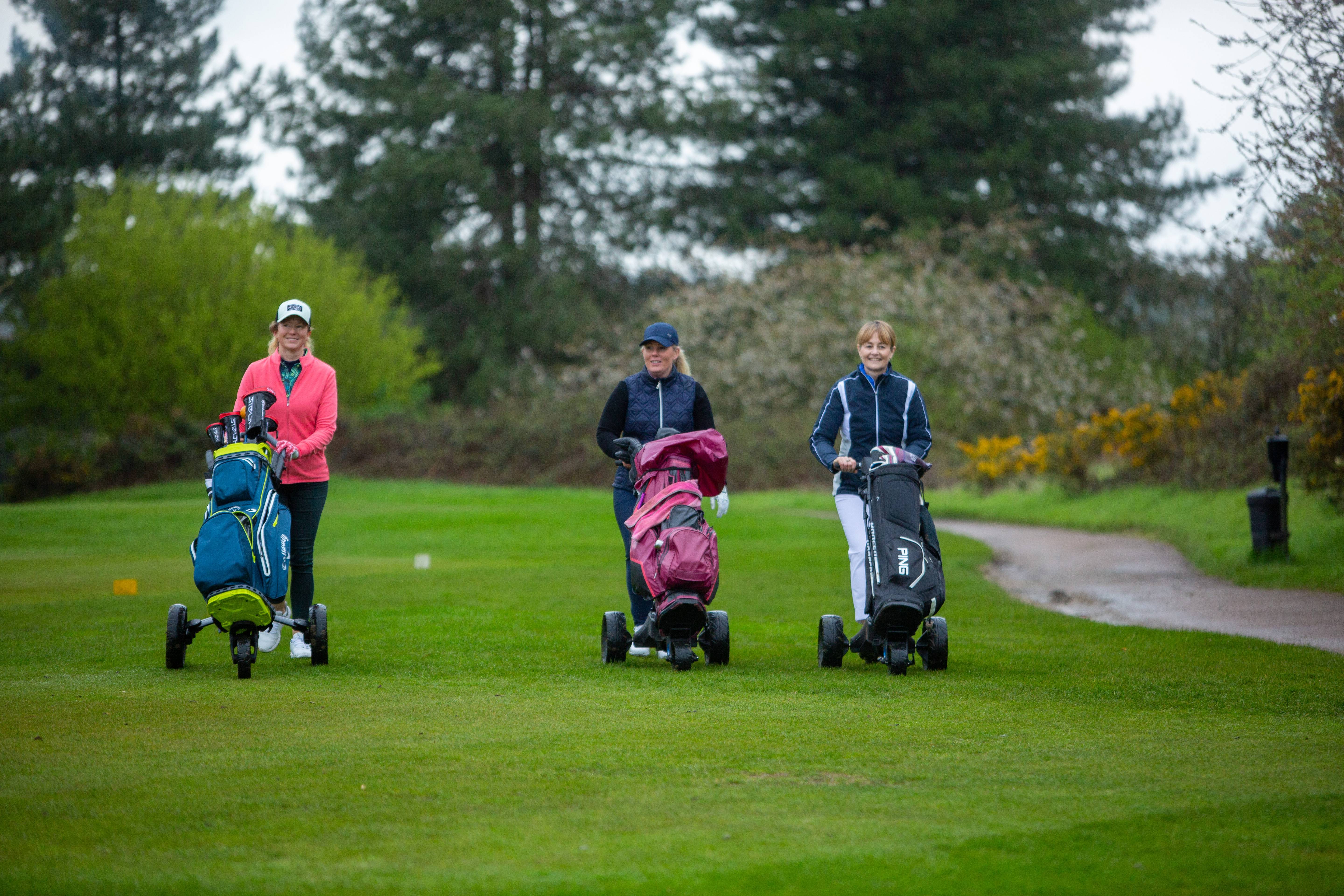
The monthly medal. The very word is enough to fill us with fear. But why does this traditional format of golf evoke so much dread? For many women, it’s the thought of taking double digits or more on a hole, causing their handicap to go up and up. It’s the shame of having to play three off the tee or a provisional ball to complete a hole, one or two bad holes ruining an entire round. It’s the thought that racking up a big score will spoil their playing partners’ games and hold the whole field up.
This situation happened to me playing in a medal recently. A lovely lady in my group (who I won’t name and shame) hit a poor tee shot on the second hole of our round into the gorse. She played a provisional ball, but we subsequently found her first ball in an unplayable spot with nowhere to take a penalty drop (even stroke and distance backwards wasn’t an option), so she was forced to take the walk of shame back to the tee.

Guess what? She went and hit the ball straight back into the middle of that gorse bush! Rather than have to repeat the same old sorry scene again she decided to call it quits and NR. Such a shame for her so early on in our round, but she was clearly uncomfortable and conscious of the time it was taking going backwards and forwards from tee to trouble, of holding us up and the group - in fact the whole field behind and rushing.
So, I totally understand why some women, like this lady, simply say ‘no’ to playing in a medal and opt out. After all, had the lost ball occurred in a Stableford competition she could have picked up on that hole and still carried on scoring for the rest of the round, just putting that down as a no-score hole, a bad start, but not ruining her entire card.
Nonetheless, it’s always disappointing to hear of women who are perfectly capable of playing a medal choosing not to enter for fear of making a scene like the scenario above. There’s certainly a marked difference between the number of women who book to play in a Stableford or in a fun format competition versus a medal at my home club Parkstone. It’s become such a big issue that we have recently trialled a solution for women facing the predicament.
With the approval of England Golf the club has introduced a local rule that allows any woman playing in a medal to stipulate before she tees off that she wants to play the ‘score 10 maximum’ format. This means that once you’ve taken 10 shots on a hole you can pick up. It goes down on the scorecard as a 10 and you can carry on. It’s still in its infancy, but we have seen a steady uptake of the number of women taking this option. The beauty is that it encourages them to have a go at playing in a medal, which for many, had become a long-lost format.

Putting a critical hat on, it would be easy to insist that the medal is a part of the great history and heritage of the game of golf and as such we should all have to play in at least three a year to keep our handicap. The purist would argue that golf originated as a game where the goal was always to just score. To simply count how many strokes it took you to get the ball in the hole and then add it up at the end. By and large, this is exactly how tournament golf is still played. So as amateurs we should embrace and appreciate that a medal is just part of our sport, it’s how the game is supposed to be played.
Or should we? In this day and age should we rip up the old scorecard so to speak and take a more modern approach to the sport, to encourage the next generation to play and stay in the game by offering a great variety of competition formats to appeal to a wide player profile. I have to admit that the golf landscape is changing. The type of women taking up golf is more diverse than ever before, which is exciting. More and more newcomers are demanding faster formats and fun ways to play. In our busy lives it’s often not possible to make time to play a medal (it’s the slowest format of golf), and many of us - particularly juniors and working women/mums - want to play and compete in a shorter time, juggling other commitments. Perhaps a blend of the two is the ideal scenario so that there continues to be one medal a month for those wishing to play, but with a maximum score allowance for those who choose it.
I used to really look forward to going to away courses to play in an Open, but last year changed that. I entered two or three where my team played brilliantly and came nowhere near the prizes. I’m talking 10 shots or more away from a prize. Now I know that it’s the taking part that counts and not the winning, but it’s frustrating when you play your socks off and get beaten by a team of falsely handicapped women.
Since the introduction of the new World Handicap System, women’s handicaps have skyrocketed, with many gaining upwards of 10 strokes. The trouble with fun formats is that you don’t have to play well on every hole, if it’s a Betterball or Texas scramble you have multiple chances, and women who once played off a decent low handicap still have that skill in them to score really well on several holes a round. Off my single figure handicapI simply can’t compete and that sort of takes the fun out of turning up at Opens, knowing it’s pretty pointless looking at the prize table.

The same can be said for club competitions that are one division for a trophy. In the last one I entered I shot a respectable net 73. The winner had a 65. Even on my absolute best day I’m not going to shoot five under par - well, never say never - but it’s really unlikely. But someone playing off a 30 handicap, who used to be in the mid-twenties before the WHS changed that, can easily play 10 under their handicap on a good day. So, handicaps no longer make golf competitions a fair and level playing field.
It’s a shame because that’s what I used to love about golf. The fact that an 80-year-old off a 35 handicap could compete alongside me off 3. Fairly. It’s happened in knock-out matches where we have battled and gone to the 19th or even 20th hole. So, while I applaud clubs for offering women the opportunity to play in all sorts of formats from traditional to forward-thinking, I still think golf’s governing bodies need to reassess handicaps and make things fair again.







